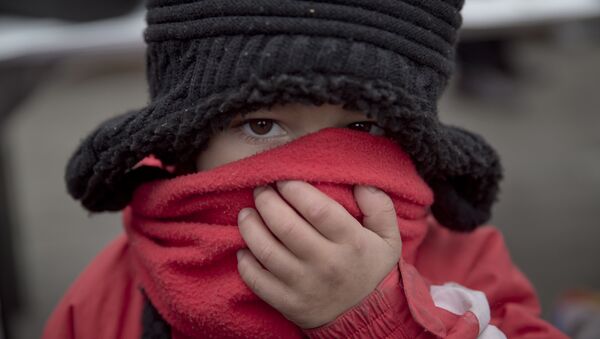Child poverty in Britain is projected to have increased in 2017 by around three percent, growing 11 percent since 2011, due to the sheer number of children living in poverty, despite their parents or carers working.
Research carried out for the Living Standards Audit 2018 suggests child poverty has been rising twice as fast as official figures show; increasing by 21 percent between 2011 and 2016 rather than 11 percent because "the impact of benefit cuts are understated."
From our latest Living Standards Audit. Typical household income growth fell to just 0.9% over the past year. Weaker still for the top third of households while incomes actually fell for the poorest third of households https://t.co/xM2Ez1NqeX pic.twitter.com/uoJwevw9q2
— ResolutionFoundation (@resfoundation) July 24, 2018
The money coming into households on higher salaries grew even slower and disposable incomes, the money left over after all the bills are paid, dropped by 0.3 percent in the poorest households.
"Reducing child poverty has been a goal of politicians from all parties in recent decades. But our analysis shows that child poverty is likely to have risen last year, and that rises since 2010 have been underestimated in official government data," Adam Corlett, senior economic analyst at Resolution said in a statement.
READ MORE: Hidden Figures: Despite Falling Unemployment in the UK, Poverty High and Rising
The foundation is calling for the British government to urgently review its plans to reduce benefit payments under its new Universal Credit system if it is serious in reversing the increase in child poverty in Britain.
"Alongside the national Brexit debate — the country needs a new conversation about what level of relative poverty we want and what we intend to do about it," the report says.
The analysis carried out by the think tanks suggests the government had been more successful than previously thought in reducing poverty by backing policies with the budget needed to implement them.
One of the most interesting findings in today's new @resfoundation report is that we significantly (£1 in every £5) underestimate benefit income in the official income and poverty survey. Once this is rectified, history looks a little different…
— Stephen Clarke (@stephenlclarke) July 24, 2018
"In contrast, our nowcast suggests 2017-18 was a strikingly bad year for lower income households as the 2015 package of benefit cuts began in earnest, in combination with high inflation," the report states.
Finally, John Hills describes today's report as "sombre reading" and casts forward to what's still to come. Says the 2015 welfare cuts are still building, with the switch to Universal Credit likely to cause more problems #livingstandards
— ResolutionFoundation (@resfoundation) July 24, 2018
The 9th incarnation of the annual @resfoundation living standards 'audit' is out today. It may well be the best and most vital yet. Detailed stats, great modelling and a v clear (and optimistic) takeaway: policy is even more powerful than we thoughthttps://t.co/8lfIIIrnTK
— Matt Whittaker (@MattWhittakerRF) July 24, 2018
The @Conservatives are directly responsible for this shocking rise in child poverty. We should be investing in our young people, building truly affordable homes and making sure people have secure, well-paid jobs. https://t.co/rGeqXsd5zq
— Caroline Lucas (@CarolineLucas) July 24, 2018
READ MORE: Half of Children in Areas of the UK Growing Up Poor, Study Shows


